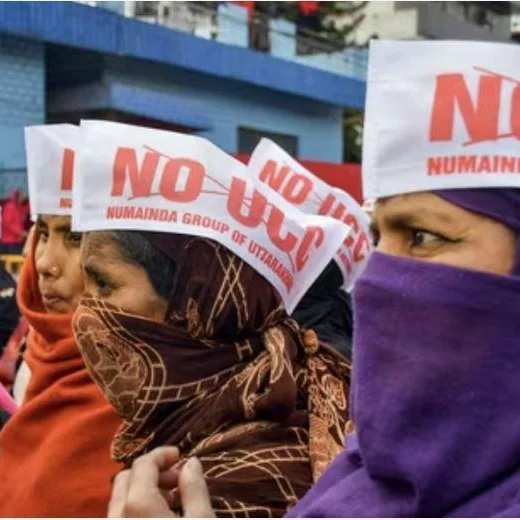Hundreds of members of Uttarakhand’s Muslim community gathered in Haridwar on Saturday to protest the recently implemented Uniform Civil Code (UCC). The demonstration, organized by the Muslim Seva Sangathan, took place outside the Collectorate office, with protesters calling for the UCC’s repeal. They expressed concerns that the code threatens their religious freedom and cultural identity.
Concerns Over Religious Freedom
Protesters voiced strong concerns that the UCC could negatively affect their religious freedom and cultural identity. The Uniform Civil Code seeks to establish a single set of laws for all citizens, regardless of their religion, covering aspects like marriage, divorce, inheritance, and adoption. Consequently, protestors feel this infringes upon their right to practice their faith according to their traditions. This fear of losing their unique cultural identity is a key reason for the protests.
Muslim Seva Sangathan’s Role
The Muslim Seva Sangathan, the organization behind the protest, actively advocates for the rights and interests of the Muslim community in Uttarakhand. Their involvement highlights local opposition to the UCC and their commitment to preserving their religious and cultural practices. It’s important to understand the nuances of the Uniform Civil Code, which you can do by researching its background and aims. To further understand similar movements, researching other civil rights advocacy groups can be helpful.
The Debate Surrounding the UCC
The Uniform Civil Code has been a subject of debate in India for a long time. Supporters of the UCC argue that it will foster equality and national unity across the country. On the other hand, critics worry that it could lead to the suppression of religious practices of minorities. The protest in Haridwar shows the ongoing challenges of balancing uniformity with religious freedom in a nation with diverse cultures and beliefs.
Diverse Perspectives on the Code
The implementation of a Uniform Civil Code raises complex questions about the balance between national unity and the protection of individual religious freedoms. As the debate continues, it is important to consider the perspectives of all communities affected by the proposed changes. Understanding these different viewpoints is essential for a constructive dialogue about the future of civil law in India. This situation requires a delicate approach that respects both the nation’s unity and the rights of its diverse population.
